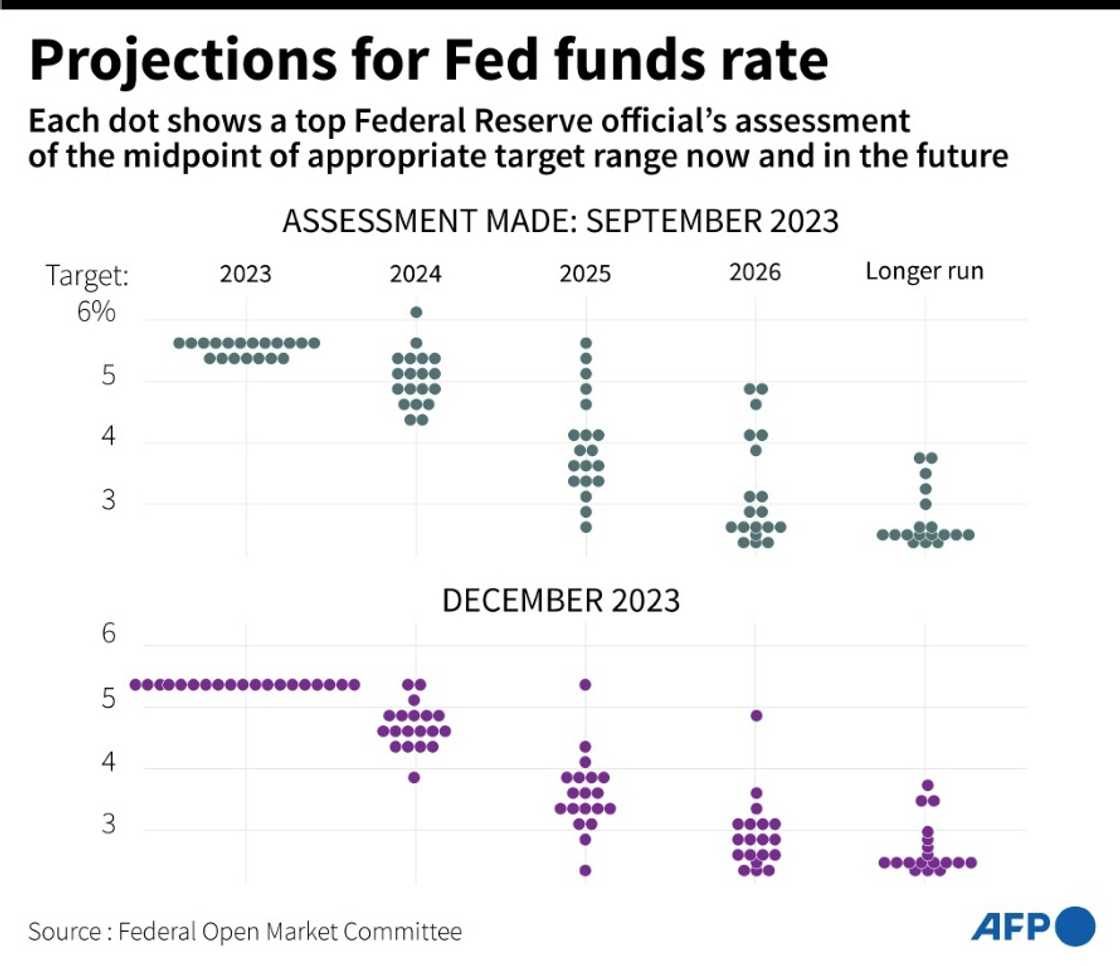US Fed official says open to 'summer time' interest rate cut

Source: AFP
The speed at which US inflation is easing means it will likely be appropriate for the Federal Reserve to start cutting interest rates over the summer, a senior Fed official said Thursday.
The US central bank recently penciled in three interest rate cuts this year, but did not say when it would begin reducing its key lending rate, sparking speculation in the financial markets.
Key to its decision is whether inflation -- down sharply since hitting a multi-decade high in 2022 -- continues to close in on the Fed's long-term target of two percent.
"A year ago, I had expected that the first cut in rates would be appropriate probably at the end of this year at the earliest," Atlanta Fed President Raphael Bostic told a conference in the city on Thursday.
"The acceleration of inflation's decline has caused me to pull that forward," said Bostic, who is one of the 12 voting members of the Fed's rate-setting committee this year.
"It'll probably be appropriate, if things go the way I expect, to see us to start to reduce rates in the summer time," he said, but noting he would remain "data dependent."

Source: AFP
Bostic's remarks came shortly after fresh data showed the Fed's favored inflation gauge was continuing to ease, albeit with some underlying cause for concern.
The personal consumption expenditures (PCE) price index rose at an annual rate of 2.4 percent in January, down 0.2 percentage points from December, the Department of Commerce said in a statement.
But so-called "core" inflation, which strips out volatile food and energy costs, increased by 0.4 percent from a month earlier, indicating an uptick in underlying inflation from December to January.
Bostic's summer time cut prediction appears to chime with the current views in the financial markets about when the Fed could start reducing rates.
Futures traders currently assign a probability of almost 70 percent that the Fed will cut interest rates by June 12, according to CME Group data.
The probability rises to more than 85 percent by the end of July, which suggests that a summer cut is more or less baked into traders' forecasts.
PAY ATTENTION: Stay informed and follow us on Google News!
Source: AFP



